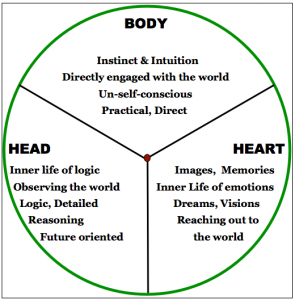
Wisdom-Trek / Creating a Legacy
Welcome to Day 1066 of our Wisdom-Trek, and thank you for joining me.
I am Guthrie Chamberlain, Your Guide to Wisdom
The Spiritual Warfare of Baptism – Wisdom Wednesday

Wisdom – the final frontier to true knowledge. Welcome to Wisdom-Trek where our mission is to create a legacy of wisdom, to seek out discernment and insights, and to boldly grow where few have chosen to grow before.
Hello, my friend, I am Guthrie Chamberlain, your captain on our journey to increase wisdom and create a living legacy. Thank you for joining us today as we explore wisdom on our 2nd millennium of podcasts. This is Day 1066 of our trek, and it is Wisdom Wednesday. Creating a Biblical worldview is important to have a proper perspective on today’s current events. To establish a Biblical worldview, you must also have a proper understanding of God’s Word.
Especially in our western cultures, we do not fully understand the Scriptures from the mindset and culture of the authors. In order to help us all have a better understanding of some of the more obscure passages in God’s Word, we are investing Wisdom Wednesday reviewing a series of essays from one of today’s most prominent Hebrew Scholars Dr. Micheal S. Heiser. He has compiled these essays into a book titled I Dare You Not to Bore Me with the Bible.
What is the purpose or significance of baptism? In today’s essay, we will explore passages that cover…
The Spiritual Warfare of Baptism

The pastor had been preaching a series of messages through l Peter. When it was time for 1 Peter [3:14]-22 he sincerely announced, “We’re going to skip this section since it’s just too strange.” He was right and wrong that day. As odd as it is, this passage is one of the most compelling in the New Testament, if you understand what it is saying.
But even if you suffer for doing what is right, God will reward you for it. So don’t worry or be afraid of their threats. Instead, you must worship Christ as Lord of your life. And if someone asks about your hope as a believer, always be ready to explain it. But do this in a gentle and respectful way. Keep your conscience clear. Then if people speak against you, they will be ashamed when they see what a good life you live because you belong to Christ. Remember, it is better to suffer for doing good, if that is what God wants, than to suffer for doing wrong! Christ suffered for our sins once for all time. He never sinned, but he died for sinners to bring you safely home to God. He suffered physical death, but he was raised to life in the Spirit. So he went and preached to the spirits in prison, those who disobeyed God long ago when God waited patiently while Noah was building his boat. Only eight people were saved from drowning in that terrible flood. And that water is a picture of baptism, which now saves you, not by removing dirt from your body, but as a response to God from a clean conscience. It is effective because of the resurrection of Jesus Christ. Now Christ has gone to heaven. He is seated in the place of honor next to God, and all the angels and authorities and powers accept his authority.

The theme of 1 Peter is that Christians must withstand persecution and persevere in their faith. To understand how our odd passage fits with that theme, we need to get our heads around the concept of “types” and typology—a kind of prophecy that occurs in the Bible.
We’re most familiar with prophecies directly from the mouth of a prophet. But a “type” is an unspoken prophecy: it is an event, person, or institution that foreshadows something that will come. For example, Paul tells us that Adam was a type of Christ. He foreshadowed or echoed something about Jesus, namely that His work on the cross would affect all people just as Adam’s disobedience had a global effect (Rom [5:14]).
1 Peter [3:14]-22 uses typology. The passage presumes that events associated with Genesis 6 typify or foreshadow the gospel and the resurrection. The episode of Genesis 6:1-4, where angelic beings (the “sons of God”) cohabited with human women—the catalyst to the wickedness that brought the judgment of the flood, was especially significant. For Peter, these events were commemorated during baptism.
Peter was evidently familiar with Jewish tradition about Genesis 6. Jewish writers just prior to the New Testament era taught that God sent Enoch (Genesis [5:21]-24) to inform the fallen sons of God that they were doomed for what they had done. These angelic beings were, according to Jewish traditions, held in a prison under the earth.
Peter saw a theological analogy in these ideas. Just as Jesus was the second Adam for Paul, Jesus is the second Enoch for Peter.

Enoch descended to the imprisoned fallen angels to announce their doom. 1 Peter [3:14]-22 has Jesus descending to these “spirits in prison,” these fallen angels. He then tells them they were defeated, despite His crucifixion. God’s plan of salvation and ruling His kingdom was still intact. In fact, it was right on schedule. The crucifixion actually meant victory over every demonic force opposed to God. This victory declaration is why 1 Peter [3:14]-22 ends with Jesus risen from the dead and set at the right hand of God, above all angels, authorities, and powers.
How does this relate to baptism? It explains the logic of the passage. Two words in verse 21 need reconsideration in light of this backdrop. The word most often translated “appeal” (eperotema) in verse 21 is best understood as “pledge.” Likewise, the word “conscience” (suneidésis) does not refer to the inner voice of right and wrong here. Rather, the word refers to an attitude or decision that reflects one’s loyalty.
Baptism, then, is not what produces salvation: it is an oath of loyalty to the risen savior, a public avowal of who is on the Lord’s side in the cosmic war between good and evil. It is also a visceral reminder to the defeated fallen angels. Every baptism is a reiteration of their doom in the wake of the gospel and the kingdom of God.
Early Christians understood the typology of this passage and its link back to the fallen angels of Genesis 6. Early baptismal formulas included a renunciation of Satan and his angels for this very reason. Baptism was and still is spiritual warfare.
That will conclude our essay for this week. Next Wisdom Wednesday we will continue in the New Testament as we look at Dr. Heiser’s next essay titled “Jesus Is God.” I believe you will find this another interesting topic to consider as we build our Biblical worldview.
Tomorrow we will continue with our 3-minute Humor nugget that will provide you with a bit of cheer and help you lighten up and live a rich and satisfying life. So encourage your friends and family to join us and then come along with us tomorrow for another day of our Wisdom-Trek, Creating a Legacy.

If you would like to listen to any of our past 1065 treks or read the Wisdom Journal, they are available at Wisdom-Trek.com. I encourage you to subscribe to Wisdom-Trek on your favorite podcast player so that each day’s trek will be downloaded automatically.
Thank you so much for allowing me to be your guide, mentor and most of all your friend as I serve you through the Wisdom-Trek podcast and journal.
As we take this trek together, let us always:
- Live Abundantly (Fully)
- Love Unconditionally
- Listen Intentionally
- Learn Continuously
- Lend to others Generously
- Lead with Integrity
- Leave a Living Legacy Each Day
I am Guthrie Chamberlain reminding you to Keep Moving Forward, Enjoy Your Journey, and Create a Great Day Everyday! See you tomorrow!

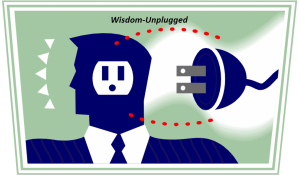
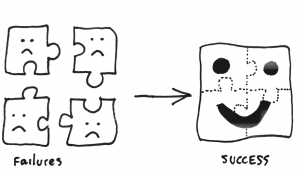


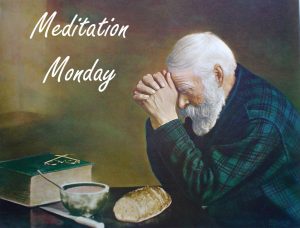






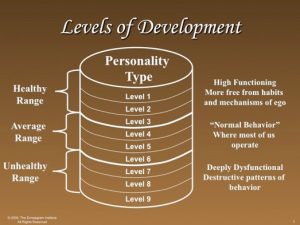
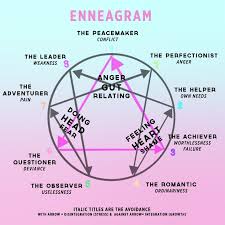
 That covers the Fourteenth group of 3 (for a total of 42) out of 45 possible type combinations. We will continue each week to look into three additional combinations as we work our way through the numbers. You are important in God’s Kingdom, live to your fill God-Given potential. Regardless of your personality type and the personality types of those with whom you interact in person or online, we must follow God’s Word as told to us in
That covers the Fourteenth group of 3 (for a total of 42) out of 45 possible type combinations. We will continue each week to look into three additional combinations as we work our way through the numbers. You are important in God’s Kingdom, live to your fill God-Given potential. Regardless of your personality type and the personality types of those with whom you interact in person or online, we must follow God’s Word as told to us in 
